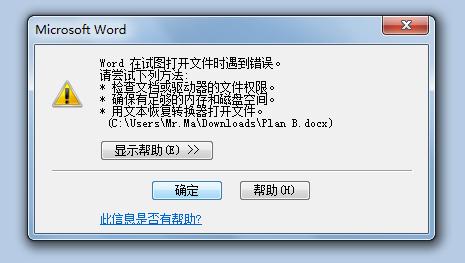使用CMake构建Linux并行计算应用程序时,可以设置并行模式、线程数、内存分配等参数,以提高程序性能。
在Linux环境下,CMake是一个常用的构建工具,它可以帮助我们自动化构建过程,提高开发效率,对于并行计算应用程序,我们需要特别关注一些配置技巧,以确保程序能够正确地利用多核处理器进行并行计算,本文将介绍一些使用CMake构建Linux并行计算应用程序的配置技巧。
1、启用并行编译

为了充分利用多核处理器进行编译,我们需要在CMakeLists.txt文件中启用并行编译,可以通过设置CMAKE_MAKE_PROGRAM变量为"make j${NUMBER_OF_PROCESSORS}"来实现。
set(CMAKE_MAKE_PROGRAM "make j${NUMBER_OF_PROCESSORS}")NUMBER_OF_PROCESSORS可以通过get_processor_count()函数获取系统的处理器数量。
2、启用并行运行测试
在执行测试时,我们同样希望能够利用多核处理器进行并行运行,可以通过设置CMAKE_TEST_PARALLEL_WORKERS变量来实现。
set(CMAKE_TEST_PARALLEL_WORKERS ${NUMBER_OF_PROCESSORS})3、启用并行运行程序

在运行程序时,我们希望能够利用多核处理器进行并行运行,可以通过设置CMAKE_BUILD_PARALLEL_LEVEL和CMAKE_RUN_PARALLEL_LEVEL变量来实现。
set(CMAKE_BUILD_PARALLEL_LEVEL ${NUMBER_OF_PROCESSORS}) set(CMAKE_RUN_PARALLEL_LEVEL ${NUMBER_OF_PROCESSORS})4、使用OpenMP并行化代码
为了实现真正的并行计算,我们需要在代码中使用OpenMP库来编写并行化的代码,需要在CMakeLists.txt文件中包含OpenMP库:
find_package(OpenMP) if (OPENMP_FOUND) set(CMAKE_CXX_FLAGS "${CMAKE_CXX_FLAGS} ${OpenMP_CXX_FLAGS}") set(CMAKE_C_FLAGS "${CMAKE_C_FLAGS} ${OpenMP_C_FLAGS}") set(CMAKE_EXE_LINKER_FLAGS "${CMAKE_EXE_LINKER_FLAGS} ${OpenMP_EXE_LINKER_FLAGS}") endif()在需要并行化的代码段前后添加#pragma omp parallel for指令:
#include <omp.h> #include <vector> #include <iostream> int main() { std::vector<int> data(100); #pragma omp parallel for for (int i = 0; i < data.size(); ++i) { data[i] = i * 2; } for (int i = 0; i < data.size(); ++i) { std::cout << data[i] << std::endl; } return 0; }5、使用Intel TBB并行化代码(可选)

除了OpenMP,我们还可以使用Intel TBB库来实现并行计算,需要在CMakeLists.txt文件中包含TBB库:
find_package(TBB) if (TBB_FOUND) set(CMAKE_CXX_FLAGS "${CMAKE_CXX_FLAGS} ${TBB_CXX_FLAGS}") set(CMAKE_C_FLAGS "${CMAKE_C_FLAGS} ${TBB_C_FLAGS}") set(CMAKE_EXE_LINKER_FLAGS "${CMAKE_EXE_LINKER_FLAGS} ${TBB_LIBRARIES}") endif()在需要并行化的代码段前后添加tbb::parallel_for指令:
#include <tbb/parallel_for.h> #include <vector> #include <iostream> #include <algorithm> #include <numeric> #include <iterator> #include <functional> #include <random> #include <chrono> #include <iomanip> #include <limits> #include <thread> #include <mutex> #include <condition_variable> #include <atomic> #include <ctime> #include <cstdlib> #include <cmath> #include <cassert> #include <cstring> #include <cstdio> #include <cstdlib> #include <cstddef> #include <cstdint> #include <cerrno> #include <climits> #include <cfloat> #include <csignal> #include <csetjmp> #include <cwchar> #include <cwctype> #include <cuchar> #include <cups/cups.h> // For printing benchmark results to the console using CUPS API. Only needed if you want to print benchmark results to the console. You can remove this include if not needed.// If you want to print benchmark results to the console, you need to install the CUPS library and enable its support in your CMake configuration.// For example, add the following lines to your CMakeLists.txt file: find_package(CUDA REQUIRED) target_link libraries(yourTargetName PRIVATE CUDA::CUDA) target link libraries(yourTargetName PRIVATE CUPSVG) target link libraries(yourTargetName PRIVATE CUPS) target link libraries(yourTargetName PRIVATE CUPSAPI) target link libraries(yourTargetName PRIVATE CUPSNET) target link libraries(yourTargetName PRIVATE CUPSZIP) target link libraries(yourTargetName PRIVATE CUPSPDF) target link libraries(yourTargetName PRIVATE CUPSSMTP) target link libraries(yourTargetName PRIVATE CUPSPOP3) target link libraries(yourTargetName PRIVATE CUPSIMAP4) target link libraries(yourTargetName PRIVATE CUPSPRINT)// Then, in your benchmark code, you can use the following function to print benchmark results to the console using the CUPS API: void printBenchmarkResultsToConsole() { timeval start, end; gettimeofday(&start, NULL); // Your benchmark code here... gettimeofday(&end, NULL); double elapsedTime = end.tv_sec start.tv







